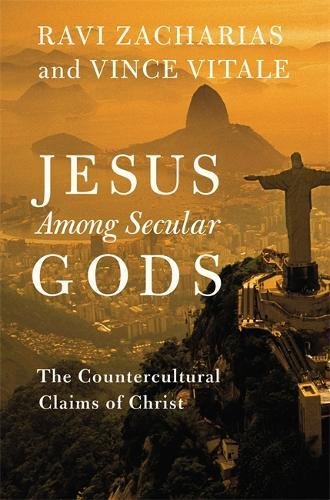A Brief Book Summary from Books At a Glance
About the Authors
Ravi Zacharias is a world renowned Christian apologist, author, and teacher. Vince Vitale was educated at Princeton and Oxford, and is the director of the Zacharias Institute.
Introduction
In this book, Ravi Zacharias and Vince Vitale examine the secular worldview and find it wanting. There are many facets to atheism and many different approaches to it, but they are all insufficient. Zacharias and Vitale explore the inner coherence of the various secular “isms” and demonstrate that secularism cannot provide a cogent alternative to Christianity. In contrast to the secular ideologies, the authors point to the truth of Christianity and demonstrate that its major doctrines resonate with both reason and experience.
Table of Contents
Chapter 1 Altars Against God
Chapter 2 Atheism
Chapter 3 Scientism
Chapter 4 Pluralism
Chapter 5 Humanism
Chapter 6 Relativism
Chapter 7 Hedonism
Chapter 8 Love the Truth
Summary
Chapter 1: Altars Against God
Many contemporary atheists are characterized by the stridency, arrogance, and rudeness of Richard Dawkins (although there are also many atheists who are turned off by such attitudes). Such condescension is not conducive to constructive dialogue and understanding. Christians do not know the answer to every question, but they do know the meaning of life. Mocking of the sacred reveals personal character defects. Belief or non-belief in God makes more difference for thought and action than anything else. Moral values are required for society to survive. Atheism does not provide the moral framework required for justice and self-sacrifice to triumph in a dangerous world. Atheism and the rejection of God are not new—they are as old as time. People continually challenge and deny the veracity of God and his Word. We wish to be autonomous and have power, so we reject the truth that God is the definer of reality and that there is objective right and wrong. People seem to intuitively know that there is a higher power or supreme being, and that value and ethics are part of the fabric of reality. Three major questions keep recurring amongst humans: 1. What is the meaning of life? 2. How do I fulfill my desires? 3. What is the point of suffering and pain? The answers to these questions depend on why we’re here and why we exist. Despite loud assertions to the contrary, secular humanism and scientism have not even remotely begun to justify their worldview claims. Society’s structures and laws must be built on moral reasoning, and atheism cannot provide a foundation for moral statements.
Chapter 2: Atheism
Some atheists are using very harsh and inflammatory language to refer to God as a moral monster. The problem of evil and suffering has troubled human beings throughout history, whether they are religious or not. In fact, the Bible records the struggles of prophets and believers who wonder where God is and what he is doing in the midst of injustice and pain. Dawkins says that God is evil, but since God doesn’t exist, he must mean that people are evil (since they invented God and are the ones who actually perpetrate crimes). But Dawkins also says we only dance to our DNA, so where can he find genuine morality and ethical responsibility? Naturalism leaves us with mechanical determinism, no free choice, and therefore no love and responsibility. The Bible, on the other hand, teaches us that we are free, but as we reject God we become more deeply enslaved to sin. Scripture presents a profound view of the eternal God who created this temporal order—this life is not all there is, and our existence is not accidental. Part of the human experience is the quest for justice. Yet atheism cannot provide a foundation for justice, nor can it guarantee that justice will be done. Justice apart from God is bound-up with political power, and Western societies are experiencing the disintegration of moral judicial reasoning. Atheists tend to miss the fact that if you eliminate God from the equation, you eliminate the foundation, standard, and source of goodness. Evil exists in the world, but to call something evil we need something that is good. Atheists believe that they are justified in speaking the truth as they see it, even though. . .
[To continue reading this summary, please see below....]The remainder of this article is premium content. Become a member to continue reading.
Already have an account? Sign In
